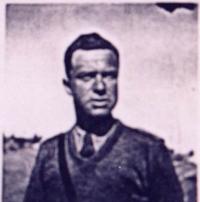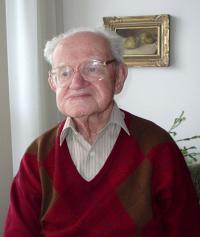When our train arrived, the music started. But there were no German Nordic-like looking people at the windows of the train, but mostly dark haired Jews people
Mr. Otto Klíma was born in Benesov in Czech/Jewish family. His family ran a spirits shop. In 1936 Mr. Klima graduated on the Faculty of law in Prague and gained the D.C.L honor. He worked as an attorney’s clerk in Jindřichův Hradec town. In 1939 he voluntarily joined the transport to Palestine. He was called up to the 11th Czechoslovak army infantry troop. He underwent the general military training in Gedera camp and in the dessert camp near by Jericho town. Mr. Klíma didn’t follow up his troop to Tubruq, because he was replaced to the Czechoslovakian provost’s court in the Middle East, where he functioned as an examining judge at the beginning. Later on, in Britain he became a judge for the Czechoslovakian court and after the end of the war he started to work as an army prosecutor. In 1951 he has been deposed and dismissed from the justice services due to his previous involvement in the western army and his Jewish origin. After that he worked as a Book wholesale company lawyer.


